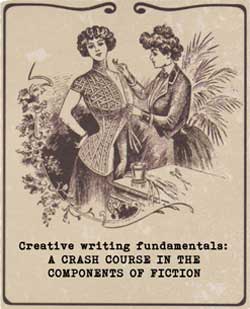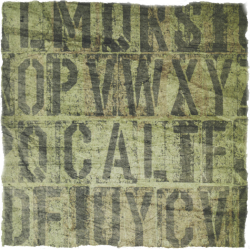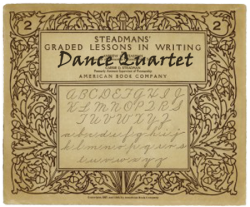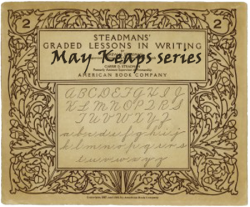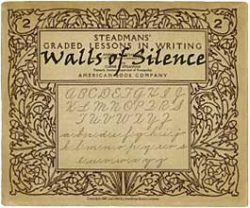I want to be the best writer I can possibly be which means no resting on laurels and always pushing myself to try something beyond my current capabilities. It’s scary stuff to be continually out of your depth. Walls of Silence is the novel that tested my desire not to tread water to the utmost. I returned to it time and again over a period of twelve years, each revisit seeing me bolder and enlarging my vision as my skills and confidence grew. It was a murder mystery of sorts when Val McDermid read the first line (I wrote the opening paragraph whilst on an Arvon Crime Writing course) but now I think of it as a psychosocial* novel in which the violence perpetrated is as much institutional as it is defining in its vengefulness.
The themes of madness, social isolation, shell-shock, and repression have been consistent throughout this book’s long gestation but I wasn’t a good enough writer in the early days to handle such weighty material; I lacked the skill to construct a plot suitable for exploring the psychological makeup of a damaged mind. There is an uncomfortable marriage in writing (and, I assume, in every other creative art) between having ambitious ideas and possessing the ability to execute them.
The problem is that we have to invest so much of ourselves before we can find out if this writing project is the one best left cutting our losses on. Whenever I have had to admit defeat and retire from the ring (which has happened more often than I care to admit) I salve my ego with the fact I step away a better writer. And if, one day, the concept can stand up to an objective analysis by the more accomplished author I will have become, then I will be in a position to make a better fist of it.
Knowing your strengths and weaknesses is key to both developing expertise and not setting yourself up to fail. In writing, there will always be one (or two if you’re lucky) of the component skills that will come more naturally than the others. Cultivate your strengths. If you discover you have a natural ear for realistic and engaging dialogue then get your characters talking whenever they can and focus on learning how to weave an intricate plot – or whatever else it is consistently lets you down – around them.
Be honest with yourself about what you need to get better at. Because, trust me, readers and critics won’t be backward in telling you where your failings lie.









